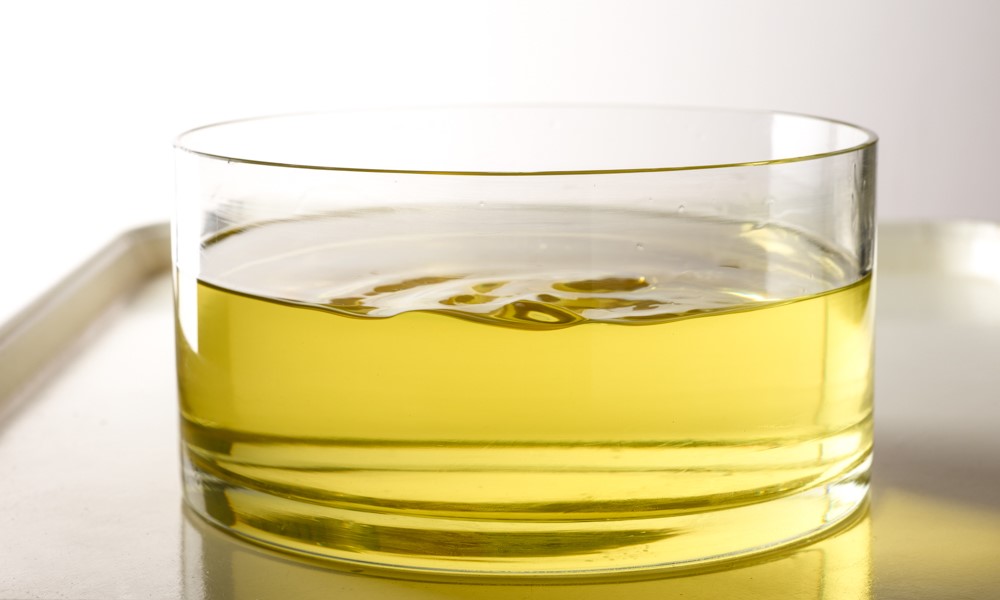Peer-Reviewed Manuscript Reinforces the Health Benefits of Seed Oils
For Immediate Release
Friday, April 18, 2025Based on the study’s findings, lead author answers frequently asked questions regarding linoleic acid and how seed oils are processed

While decades of scientific evidence confirm the health benefits of seed oils, most Americans now report sourcing information from social media versus credible sources like health professionals.
A new, peer-reviewed manuscript in Nutrition Today confirms the scientific consensus on seed oils: their favorable fatty acid composition – especially compared to saturated fats – supports cardiovascular health. The paper also outlines the steps involved in the processing of seed oils, including the use and removal of hexane in extraction.
The manuscript examines how the body metabolizes linoleic acid, the omega-6 polyunsaturated fatty acid found in most seed oils, which may help reduce inflammation. It reinforces the role of seed oils like soybean, corn, and canola in healthy dietary patterns to reduce the risk of cardiovascular disease, consistent with guidance from leading health authorities. In addition, it highlights emerging evidence that linoleic acid may reduce the risk of developing several chronic diseases like type 2 diabetes, liver disease, and dementia.
To learn more, we interviewed Kristina Petersen, PhD., lead author of the manuscript and associate professor, Department of Nutritional Sciences, Pennsylvania State University. Our conversation takes a closer look at the study's findings and explores some commonly asked questions regarding linoleic acid and seed oils.

Q&A with Kristina Petersen, PhD.
How does linoleic acid contribute to a healthy diet?
“Linoleic acid is an essential fatty acid most prevalent in soybean oil, which is the most consumed edible oil in North America. This omega-6 polyunsaturated fatty acid provides cardiovascular benefits and supports various physiological functions, as part of a healthy diet.
Importantly, evidence from randomized control trials (human intervention studies) show no effect of linoleic acid intake on markers of oxidative stress.”
How does linoleic acid affect cardiovascular health?
“The health benefits of linoleic acid on cardiovascular health are well-documented. Multiple meta-analyses have shown that higher intake of linoleic acid is linked to a reduced risk of cardiovascular events and mortality.
In fact, higher linoleic acid intake is associated with a 15% reduction in the risk of heart disease and a 21% reduction in cardiovascular disease mortality. Clinical trials also support the idea that replacing saturated fats with polyunsaturated fats, including those rich in linoleic acid, lowers cholesterol, and reduces the risk of heart disease.”
Can linoleic acid help prevent chronic diseases?
“Emerging evidence suggests that linoleic acid intake may help lower the risk of several chronic diseases, including type 2 diabetes, liver disease, and dementia. Independent studies, including an analysis of data for more than 200,000 adults over more than 3 decades, found that those with the highest daily intake of plant-based oils had a 16% lower total risk of premature death.”
Does linoleic acid contribute to oxidative stress?
“Linoleic acid, due to its multiple double bonds, is susceptible to oxidation, but this does not lead to harmful oxidative stress in the body. The human body has several systems in place to neutralize oxidative stress, and randomized controlled trials show that linoleic acid intake does not significantly affect oxidative stress markers.”

What about the relationship between linoleic acid and inflammation?
“The belief that linoleic acid might increase inflammation is due to its potential conversion to arachidonic acid, a metabolite linked to inflammation. However, significant evidence has debunked this misconception.
It is well-established that linoleic acid has a negligible impact on blood or tissue levels of arachidonic acid, and studies consistently show that linoleic acid intake does not increase inflammation. On the contrary, some studies suggest that linoleic acid may even decrease inflammation, improving overall health outcomes.”
How much linoleic acid should people consume for optimal health?
“The Dietary Guidelines for Americans, as well as recommendations from the World Health Organization and the European Food Safety Authority, advise limiting saturated fat to 10% of total energy intake and replacing it with polyunsaturated like linoleic acid when exceeding this level.
The National Academy of Medicine recommends that linoleic acid account for 5-10% of daily energy intake, and Americans currently consume about 8%, in line with these recommendations. Interestingly, there has been little change in linoleic acid intake over the past 20 years, highlighting its consistent role in a balanced diet.”
Are seed oils safe for consumption despite concerns about processing?
“The processing of seed oils and steps like solvent extraction using hexane and deodorization are important for removing impurities, including pesticide residue.
Hexane is efficiently evaporated during heating, and the amount of hexane left in the oil is far below safety limits. To exceed the lowest hexane daily exposure limit, analyses of oils in the marketplace confirm that a typical U.S. consumer would have to consume more than 100 times more oil each day than is currently the average.
Additionally, following deodorization to remove off-flavors and contaminants, seed oils retain beneficial nutrients like vitamin E, an antioxidant crucial for immune health, brain function, and skin protection.
While processing is how the seed becomes oil, the more important factor is how consuming the oil affects our health. Overwhelmingly, the evidence indicates that seed oil consumption benefits human health.”

Why do health authorities recommend replacing saturated fat with polyunsaturated fats like linoleic acid, and what about the proper ratio of Omega 6 versus Omega 3 polyunsaturated fatty acids?
“It is recommended to replace saturated fat with polyunsaturated fats including linoleic acid because of the strong and consistent evidence showing cardiovascular benefits.
Historically it was thought that the omega 6 to omega 3 ratio is important. However, now evidence demonstrates that meeting recommendations for both omega 6 and omega 3 fatty acids is most important. Linoleic acid (omega 6) and alpha linolenic acid (omega) are essential fatty acids, meaning the body cannot produce them and requirements must be met through the diet.”
Any other considerations healthcare providers should be mindful of when recommending seed oils to patients?
“The Dietary Guidelines for Americans recommends including liquid non-tropical vegetable oils, including seed oils, as part of healthy dietary patterns. Seed oils, including soybean oil, are healthy, affordable, and versatile choices for home cooking.
Seed oils are a commonly used ingredient in many foods, including salad dressings, pasta sauces, cakes, and cookies. Many restaurants also use seed oils to deep fry foods. While the use of seed oils to make these foods means the foods have a healthier fatty acid profile (higher in unsaturated fats), health care providers should focus on food-based guidance from the Dietary Guidelines for Americans and encourage their patients to choose nutrient-dense foods and follow a healthy dietary pattern.”
How should healthcare providers approach patient education around seed oils and linoleic acid, especially with patients who are wary of vegetable oils due to misinformation?
“There is a lot of misinformation available about seed oils and the messaging being used is very persuasive. Therefore, health care providers can use their time with patients to listen to their concerns in an empathetic, non-judgmental manner. This will help to build rapport with the patient. As appropriate, health care providers can look for opportunities to correct misinformation the patient may have heard and address their concerns based on the evidence available.”
More resources:
- Science behind Seed Oils Fact Sheet
- Soybean Oil Health Brochure
- Potential Public Health Risks of Avoiding Seed Oils
- Unpacking the Science on Seed Oils: Health Benefits Uncovered
- Seed Oils and Health Fact Sheet
For more science-backed information and resources, sign-up for the Soy Connection newsletter to also receive continued education (CU) credits.